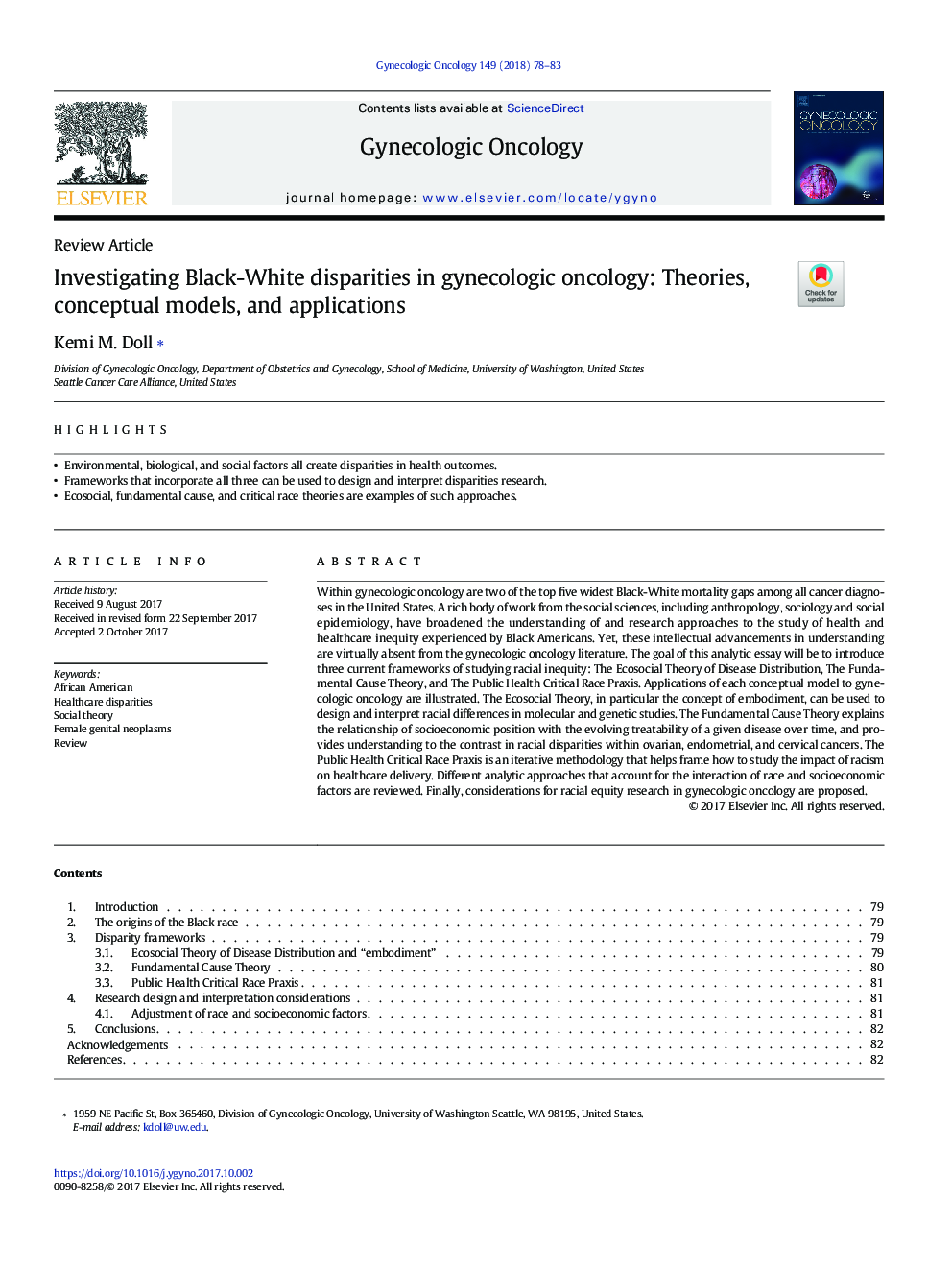| Article ID | Journal | Published Year | Pages | File Type |
|---|---|---|---|---|
| 8780349 | Gynecologic Oncology | 2018 | 6 Pages |
Abstract
Within gynecologic oncology are two of the top five widest Black-White mortality gaps among all cancer diagnoses in the United States. A rich body of work from the social sciences, including anthropology, sociology and social epidemiology, have broadened the understanding of and research approaches to the study of health and healthcare inequity experienced by Black Americans. Yet, these intellectual advancements in understanding are virtually absent from the gynecologic oncology literature. The goal of this analytic essay will be to introduce three current frameworks of studying racial inequity: The Ecosocial Theory of Disease Distribution, The Fundamental Cause Theory, and The Public Health Critical Race Praxis. Applications of each conceptual model to gynecologic oncology are illustrated. The Ecosocial Theory, in particular the concept of embodiment, can be used to design and interpret racial differences in molecular and genetic studies. The Fundamental Cause Theory explains the relationship of socioeconomic position with the evolving treatability of a given disease over time, and provides understanding to the contrast in racial disparities within ovarian, endometrial, and cervical cancers. The Public Health Critical Race Praxis is an iterative methodology that helps frame how to study the impact of racism on healthcare delivery. Different analytic approaches that account for the interaction of race and socioeconomic factors are reviewed. Finally, considerations for racial equity research in gynecologic oncology are proposed.
Related Topics
Health Sciences
Medicine and Dentistry
Obstetrics, Gynecology and Women's Health
Authors
Kemi M. Doll,
